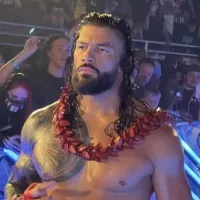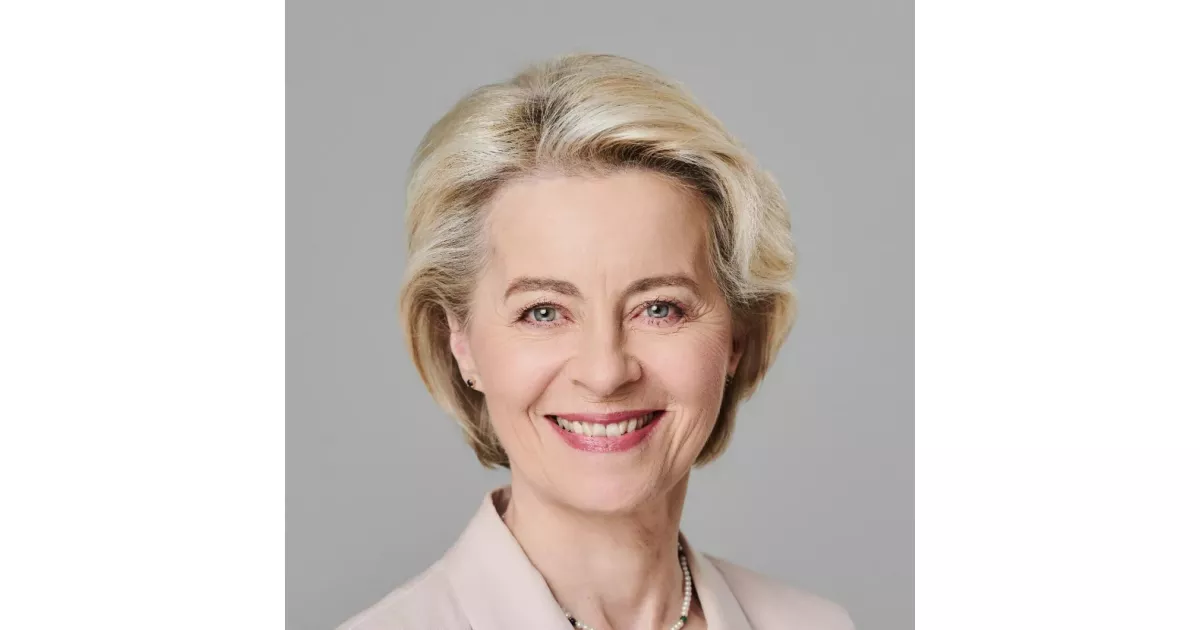From career breakthroughs to professional milestones, explore how Ursula von der Leyen made an impact.
Ursula Gertrud von der Leyen is a prominent German politician currently serving as the 13th president of the European Commission since 2019. Prior to this, she held various significant roles in the German federal government under Angela Merkel's cabinet from 2005 to 2019, including Federal Minister of Defence. A member of the Christian Democratic Union (CDU) and the European People's Party (EPP), she was elected as the EPP's Spitzenkandidat for the 2024 European Parliament elections and was subsequently re-elected to lead the Commission in July 2024.
2005: Remained with Merkel since she became chancellor
From 2005 until her 2019 appointment as the president of the European Commission, she was the only minister to remain with Merkel since she became chancellor in 2005.
2005: Federal Minister Appointment
In 2005, Ursula von der Leyen assumed office as the Federal Minister for Family Affairs, Senior Citizens, Women and Youth in Germany. She introduced the Child Advancement Act (Kinderförderungsgesetz), allocating 4.3 billion euros to establish childcare facilities throughout Germany.
March 2008: Participation in joint cabinet meeting in Jerusalem
In March 2008, Ursula von der Leyen participated in the first joint cabinet meeting of the governments of Germany and Israel in Jerusalem on the 60th anniversary of the founding of Israel, as Federal Minister of Family Affairs and Youth.
November 2009: Succeeded as Federal Minister of Labour and Social Affairs
On November 30, 2009, Ursula von der Leyen succeeded Franz Josef Jung as Federal Minister of Labour and Social Affairs.
November 2010: Elected as Deputy of CDU Chairwoman
In November 2010, Ursula von der Leyen was elected as one of four deputies of CDU chairwoman Merkel with 85% of the votes, serving alongside Volker Bouffier, Norbert Röttgen, and Annette Schavan. She also suggested the CDU should consider a formal voting process for future Chancellor candidates.
2010: Merkel's preferred candidate for President of Germany
In 2010, Ursula von der Leyen was Merkel's preferred candidate for President of Germany; however, her nomination was blocked by the conservative wing of the CDU/CSU.
2010: Considered for President of Germany
In 2010, Ursula von der Leyen was considered a front-runner for nomination as President of Germany by the CDU/CSU parties, but Christian Wulff was chosen instead. Reports indicated this was a setback for Merkel, whose preference for von der Leyen was blocked by conservative state premiers.
2012: Re-elected as Deputy of CDU Chairwoman
In 2012, Ursula von der Leyen was re-elected as one of Merkel's deputies as CDU chairwoman with 69% of the votes, serving alongside Volker Bouffier, Julia Klöckner, Armin Laschet, and Thomas Strobl.
December 2013: Appointed as Germany's First Female Defence Minister
In December 2013, Ursula von der Leyen was appointed by Merkel as Germany's first female defence minister, a move seen as reinvigorating the morale and prestige of the scandal-ridden ministry.
2013: Led Delegation in Government Negotiations
In 2013, Ursula von der Leyen led the CDU/CSU delegation in the labor policy working group during negotiations to form a government following the federal elections, with Andrea Nahles of the SPD as her co-chair.
June 2014: Introduced Plan to Make Bundeswehr More Attractive
In June 2014, Ursula von der Leyen introduced a €100 million plan to make the Bundeswehr more attractive to recruits, including by offering crèches for soldiers' children, limiting postings to match school term dates, and considerable rises in hardship allowances for difficult postings.
September 2014: Decision to Send Arms to Kurdish Forces
In September 2014, Ursula von der Leyen made the decision to send arms to Kurdish and Iraqi security forces, breaking a longstanding taboo on Germany dispatching weapons to conflict zones.
October 2014: Pledged to get grip on military equipment budget
In October 2014, Ursula von der Leyen pledged to get a grip on Germany's military equipment budget after publishing a KPMG report on repeated failures in controlling suppliers, costs and delivery deadlines for projects like the Airbus A400M Atlas transport plane, Eurofighter Typhoon jet and the Boxer armoured fighting vehicle.
December 2014: Elected as CDU executive board member
Ursula von der Leyen was elected as a member of the CDU executive board in December 2014 and received 70.5% of the votes.
2014: Comments on Europe-Russia Relations
In 2014, during the annexation of Crimea, Ursula von der Leyen argued that Russia's reliance on business with Europe was significant and that sanctions should target oligarchs and Russian business. She also advocated for increased NATO support for the Baltic states during Russia's invasion of Crimea.
2014: Instrumental in resupplying Kurdish Peshmerga fighters
In the summer of 2014, Ursula von der Leyen was instrumental in Germany's decision to resupply the Kurdish Peshmerga fighters with lethal assistance.
2014: Two Dutch brigades placed under German command
Since 2014, two of the three Royal Netherlands Army Brigades are under German Command as a result of improved Dutch–German cooperation.
January 2015: Criticized Airbus over A400M delays
In January 2015, Ursula von der Leyen publicly criticized Airbus over delays in the delivery of A400M military transport planes, complaining about product quality. The ministry agreed to accept 13 million euros in compensation for delays in deliveries of the second and third A400M aircraft.
February 2015: Defended refusal to supply Ukraine with weapons
At the Munich Security Conference in February 2015, Ursula von der Leyen publicly defended the German refusal to supply Ukraine with weapons, emphasizing the need for European unity and arguing that negotiations with Russia were possible.
March 2015: Revival of Weimar Triangle Defense Ministers Meeting
In March 2015, Ursula von der Leyen, along with her counterparts from France and Poland, revived a meeting format to promote cooperation between the three countries in crisis zones, holding the first meeting between the Weimar Triangle defense ministers since 2007.
May 2015: Expressed support for German submarine project in India
During her May 2015 visit to India, Ursula von der Leyen expressed support for a project initiated by the Indian government to build six small German TKMS diesel-electric submarines for a total cost of $11 billion.
May 2015: Approved Increase in Defence Spending
In May 2015, the German government approved an increase in defence spending, at the time 1.3% of GDP, by 6.2% over the following five years, allowing the Ministry of Defense to modernise the army fully.
August 2015: Criticism of Turkish President and Patriot Missile Mission
Following criticism from German officials of Turkish President Recep Tayyip Erdoğan’s escalation of the Kurdish–Turkish conflict in August 2015, Ursula von der Leyen decided to let Germany's three-year Patriot missile batteries mission to southern Turkey lapse in January 2016 instead of seeking parliamentary approval to extend it.
September 2015: Signaled openness to delaying troop withdrawal from Afghanistan
In September 2015, Ursula von der Leyen signaled that she was open to delaying the withdrawal of 850 German soldiers from Afghanistan beyond 2016 after the Taliban's surprise seizure of the northern city of Kunduz. German forces used to be based in Kunduz as part of NATO-led ISAF and remain stationed in the north of the country.
September 2015: Criticized Hungary's Response to Migrant Crisis
In September 2015, after Hungary used a water cannon and tear gas to drive asylum seekers back from the Hungarian-Serbian border, Ursula von der Leyen publicly criticized the government of Prime Minister Viktor Orbán, calling the measures "not acceptable and [...] against the European rules that we have".
January 2016: Participated in joint cabinet meeting with Turkey
In January 2016, Ursula von der Leyen participated in the first joint cabinet meeting of the governments of Germany and Turkey in Berlin. She also decided to let Germany's three-year Patriot missile batteries mission to southern Turkey lapse in January 2016.
February 2016: Announced Dutch-German Military Cooperation
In February 2016, it was announced that the Seebatallion of the German Navy would start to operate under Royal Dutch Navy command. Ursula von der Leyen and Dutch Minister of Defence Jeanine Hennis-Plasschaert saw the Dutch-German military cooperation as an example for setting up a European defence union.
April 2016: Committed funds for permanent presence at Incirlik Air Base
By April 2016, under Ursula von der Leyen's leadership, the German Federal Armed Forces announced they would commit 65 million Euro to establish a permanent presence at Incirlik Air Base, as part of Germany's commitment to the military intervention against ISIL.
August 2016: Joined World Economic Forum Board of Trustees
In August 2016, Ursula von der Leyen joined the World Economic Forum board of trustees.
September 2016: Chaired EPP Defence Ministers Meeting
In September 2016, Ursula von der Leyen chaired the EPP Defence Ministers Meeting, which gathers EPP defence ministers ahead of meetings of the Council of the European Union.
2016: Opposed troop withdrawal from Afghanistan
By 2016, Ursula von der Leyen opposed the troop withdrawal from Afghanistan.
2016: Views on Brexit
Following the 2016 European Union membership referendum in the United Kingdom, Ursula von der Leyen argued that the UK had "paralysed" European efforts to integrate security policy.
2016: Sought additional compensation for A400M delays
In 2016, Ursula von der Leyen asked for an additional 12.7 million euros in damages for delays in the delivery of a fourth Airbus A400M military transport plane.
2016: Approved Sending Soldiers to Mali
In early 2016, under Ursula von der Leyen's leadership, the German parliament approved government plans to send up to 650 soldiers to Mali, boosting its presence in the U.N. peacekeeping mission MINUSMA in the West African country.
2016: Reelected as CDU executive board member
Ursula von der Leyen received 72.4% of the vote for her reelection to the CDU executive board in 2016.
February 2017: Bundeswehr to play greater role for NATO
According to a policy dictated by Ursula von der Leyen in February 2017, the Bundeswehr is to play a greater role as an "anchor army" for smaller NATO states, by improving coordination between its divisions and smaller members' Brigades.
February 2017: Announced increase in Bundeswehr soldiers
In February 2017, Ursula von der Leyen announced that the number of Bundeswehr professional soldiers would increase from 178,000 to 198,000 by 2024.
February 2017: Czech and Romanian brigades integrated into German divisions
In February 2017, it was announced that the Czech Republic's 4th Rapid Deployment Brigade and Romania's 81st Mechanized Brigade would be integrated into Germany's 10th Armoured Division and Rapid Response Forces Division.
April 2017: Fired Army Training Commander
In April 2017, Ursula von der Leyen fired the army's training commander, Major General Walter Spindler, after Bundeswehr officials failed to properly investigate reports of brutal hazing rituals, sexual humiliation, and bullying in military training.
2018: Favourite to succeed Jens Stoltenberg as Secretary General of NATO
From 2018 until her nomination as European Commission president, Ursula von der Leyen was described as the favourite to succeed Jens Stoltenberg as Secretary General of NATO.
2018: Reelected as CDU executive board member
Ursula von der Leyen received 57.47% of the vote for her reelection to the CDU executive board in 2018.
July 2019: Nomination and Approval as President of the European Commission
In July 2019, Ursula von der Leyen was proposed by the European Council as their candidate for the office of President of the European Commission. On July 16th, her nomination was approved by the European Parliament. She became the first woman to hold the office and the first German since Walter Hallstein.
July 2019: Resignation from German Bundestag
In July 2019, following her nomination as a candidate for Commission president, Ursula von der Leyen resigned her seat in the German Bundestag on July 31st.
September 2019: Unveiling of the new proposed EU Commission's structure
On September 10, 2019, Ursula von der Leyen unveiled the new proposed EU Commission's structure, renaming posts and creating the controversial portfolio for "Protecting our European Way of Life", which drew heavy criticism.
October 2019: Brexit Deadline Extension
In October 2019, Ursula von der Leyen stated that the EU should extend the Brexit deadline beyond October 31, 2019.
November 2019: Need for Stable Leadership in Europe
In November 2019, at the Paris Peace Forum, Ursula von der Leyen emphasized the need for stable and responsible leadership in Europe and advocated for increasing the bloc's foreign policy budget spending by one-third.
2019: Promoted arms exports to Saudi Arabia and Turkey
In 2019, Ursula von der Leyen also promoted the German government's decisions on arms exports to Saudi Arabia and Turkey.
2019: Dutch brigade to become operational by 2019
The Dutch 43rd Mechanized Brigade will be assigned to the 1st Panzer Division of the German army, with the integration starting at the beginning of 2016, and the unit becoming operational at the end of 2019.
2019: Remained with Merkel since 2005
Until her 2019 appointment as the president of the European Commission, she was the only minister to remain with Merkel since she became chancellor in 2005.
April 2022: Support for Ukraine and EU Accession
On April 8, 2022, amidst the 2022 Russian invasion of Ukraine, Ursula von der Leyen travelled to Kyiv to support Volodymyr Zelenskyy, visited the site of the Bucha massacre, and vowed to work toward Ukraine's accession to the EU. She also expressed "confidence that EU states would soon agree to his proposal to provide Ukraine with an additional €500 million to support the armed forces in their fight against the Russian army".
May 2022: EU to Ban Imports of Russian Oil
On May 4, 2022, Ursula von der Leyen announced the European Union would seek to ban all imports of Russian crude oil and petroleum products.
July 2022: Agreement with Azerbaijan for Energy Supply
On July 18, 2022, Ursula von der Leyen called Azerbaijan a reliable partner for energy supply, later signing an agreement with the Azerbaijan government intended to diversify gas supplies amid the Russian-Ukraine war. This sparked controversy later when Azerbaijan attacked its neighbour Armenia.
August 2022: EU Emission Trading System
In August 2022, Ursula von der Leyen said the EU emission trading system is needed to reduce CO2 emissions.
April 2023: Raised Human Rights Concerns in China
In April 2023, Ursula von der Leyen and French President Emmanuel Macron raised the issue of human rights in China during their visit, amid concerns over the repression of ethnic minorities and political dissidents. They expressed concerns about the situation in Xinjiang and urged respect for Hong Kong's autonomy.
May 2023: Remarks on GDP-Based Economy
In May 2023, Ursula von der Leyen moderately criticised GDP-based economy, saying "a growth model centred on fossil fuels is simply obsolete" and "economic growth is not an end in itself".
July 2023: Visit to the Philippines
In July 2023, Ursula von der Leyen visited the Philippines and praised the improvement in human rights in the Philippines while meeting with Philippine President Bongbong Marcos.
September 2023: Meeting with UAE President
On September 7, 2023, Ursula von der Leyen met with UAE President Mohammad bin Zayed in Abu Dhabi. They discussed the export of sanctioned goods through the Gulf state to Russia, and von der Leyen urged the UAE to be more cooperative in addressing the issue.
October 2023: Condemnation of Hamas attack on Israel
During the October 2023 Israel–Hamas war, Ursula von der Leyen condemned the Hamas attack on Israel, calling it "terrorism in its most despicable form" and saying "Israel has the right to defend itself against such heinous attacks". She announced that humanitarian aid to Gaza would be tripled.
October 2023: Condemnation of Azerbaijan's Military Operation
In October 2023, Ursula von der Leyen condemned "the military operation by Azerbaijan against the Armenian population of Nagorno-Karabakh and reaffirmed the need to respect the sovereignty and territorial integrity of Armenia".
December 2023: Visit to Egypt
In December 2023, Ursula von der Leyen visited Egypt and discussed the "strategic partnership" between the EU and Egypt with Egyptian President Abdel Fattah el-Sisi.
March 2024: EPP Nomination
In March 2024, Ursula von der Leyen was reconfirmed as the European People's Party's (EPP) candidate for the Presidency of the European Commission, with opinion polls indicating a high likelihood of her re-election as President.
March 2024: EPP elected her as its Spitzenkandidat
On March 7, 2024, the EPP elected Ursula von der Leyen as its Spitzenkandidat to lead the campaign for the 2024 European Parliament elections.
April 2024: Praised EU Asylum and Migration Pact
In April 2024, Ursula von der Leyen praised the EU Asylum and Migration Pact as a "huge achievement for Europe." The Pact enables countries where migrants first arrive to relocate up to 30,000 migrants per year to other EU member states and institutes a "mandatory solidarity mechanism."
June 2024: Nomination for Second Term
On June 27, 2024, the European Council nominated Ursula von der Leyen for a second term as President of the European Commission.
July 2024: Re-election to head the Commission
In July 2024, Ursula von der Leyen was re-elected to head the European Commission.
July 2024: Re-election as President of the European Commission
On July 18, 2024, Ursula von der Leyen was re-elected as President of the European Commission by the European Parliament, securing an absolute majority with 401 out of 720 members voting in her favor. This majority was approximately thirty votes larger than her initial election in 2019.
July 2024: Re-election as President
On July 18, 2024, Ursula von der Leyen was re-elected for a second five-year term as President of the European Commission, securing 401 votes in favor during a secret ballot at the European Parliament.
2024: Advocacy for Nuclear Power
In 2024, Ursula von der Leyen became a proponent of nuclear power, aligning with her party, the CDU.
2024: Bundeswehr to increase soldier count by 2024
In February 2017, Ursula von der Leyen announced that the number of Bundeswehr professional soldiers would increase from 178,000 to 198,000 by 2024.
February 2025: Clean Industrial Deal Announced
On February 26, 2025, the European Commission, under Ursula von der Leyen, announced the Clean Industrial Deal, a collection of measures backed by 100 billion euros (approximately $104.94 billion USD) aimed at supporting EU-made clean manufacturing.
March 2025: Announcement of ReArm Europe
On March 4, 2025, Ursula von der Leyen announced the EU's €800 billion (approximately $840 billion USD) defence investment plan called "ReArm Europe". She also suggested the EU might need to ease fiscal rules regarding national debt to facilitate increased defense spending by member states.
2030: €130 billion to be spent on equipment by 2030
In May 2016, Ursula von der Leyen announced Germany would spend €130 billion on new equipment by 2030.
Mentioned in this timeline
Ukraine is a country in Eastern Europe the second-largest on...
California is a U S state on the Pacific Coast...
Saudi Arabia officially the Kingdom of Saudi Arabia KSA is...
Pfizer Inc is a multinational pharmaceutical and biotechnology corporation headquartered...
Azerbaijan is a transcontinental and landlocked country located in the...
India officially the Republic of India is a South Asian...
Trending

12 minutes ago SEPTA Adjusts Service in Philadelphia Amidst Intense Blizzard and Heavy Snowfall.
12 minutes ago Hawaiian Airlines to reduce widebody planes, update Airbus A330 cabins.

12 minutes ago Michael Conforto Signs with Chicago Cubs Amidst Dodgers Free Agent Rumors.

2 hours ago Shakira Announces Free Concert in Mexico City's Zócalo for Her Fans

5 hours ago Roman Reigns Pulled From Show, Wins Royal Rumble 2026; Future WWE Plans

4 hours ago Mike Goldberg details Brock Lesnar's transformative impact and influence on the UFC.
Popular

Jesse Jackson is an American civil rights activist politician and...

Barack Obama the th U S President - was the...

Bernie Sanders is a prominent American politician currently serving as...

Michael Joseph Jackson the King of Pop was a highly...
The Winter Olympic Games a major international multi-sport event held...

XXXTentacion born Jahseh Dwayne Ricardo Onfroy was a controversial yet...
